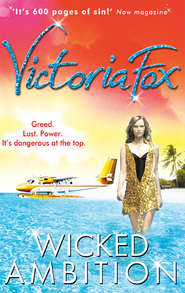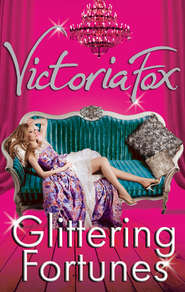По всем вопросам обращайтесь на: info@litportal.ru
(©) 2003-2024.
✖
The Silent Fountain
Настройки чтения
Размер шрифта
Высота строк
Поля
I’m up early on my first morning. The house is quiet and for a moment I forget where I am, before I see my bags heaped at the end of the bed, still full. I’d meant to unpack before falling asleep, but supper must have finished me off – a glance at my panda eyes reminds me I forgot to wash my face. I think of my predecessor, Bill’s friend’s friend, the student whose inquisitiveness got the better of her, and decide that if I’m going to avoid the same fate I’ll need to start as I mean to go on. Ten minutes later, I’ve sorted the shampoo explosion I’d noticed at Pisa, the rest of my clothes are neatly hung and folded, and my belongings are arranged in the Lilac Room.
I shower before heading downstairs. The shrouded portraits, though blinded, watch me as I pass. I remember the man I saw, covered now. Who is he?
The hall is empty. I cannot hear a thing, no voices and no movement, just birdsong. In the scullery, breakfast is left out like a still life: a loaf of bread, a pat of butter, a jug of orange juice and a bunch of grapes. Adalina told me that she alone prepares the meals – ‘Signora prefers it that way’ – and that I must never interfere with cooking. This seems unusual, given that Adalina’s description of my job extends to tending every other aspect of the Barbarossa, from sweeping fire grates to dusting shelves to going to the foot of the drive each morning to collect fresh milk. Perhaps the woman of the house is fussy. Perhaps she can eat only certain things.
I mull this over while I devour the food, not half so picky myself. The grapes burst on my tongue and the butter soaks into the bread crusts, warmed by the morning heat. From a narrow window I can see out to the courtyard, and, as I take my first sip of coffee, I’m surprised to catch a figure resting a bucket on the lip of that ugly fountain. I can only assume it to be the maid. The figure appears to steady herself, before lifting the vessel and emptying it into the well. For a moment the scullery feels weirdly hostile, as if I’m witnessing something I shouldn’t, something clandestine, and am myself being witnessed doing it. The bucket goes to the ground and another comes up in its place, is emptied and then replaced by a third, then a fourth, then a fifth. I consider the heat of the Tuscan sun and how the pool would dry up otherwise – but why sustain it when its function is long gone? The fish hasn’t sung in decades.
If I listen hard I can hear the slosh of the water as it meets the stone, an urgent, vital connection, as if the liquid keeps the fountain alive, heart beating and lungs filled – like feeding something feral in a dark pit. The coffee tastes suddenly sour.
I look away, my appetite diminished. When I glance up again, the courtyard is empty.
*
Afterwards, I begin my commission for the morning – the ballroom. It hasn’t been used in decades and I have to force the door, which swings on rusted hinges. Peach drapery adorns the high windows, whose panes are adrift with cobwebs. I climb the stepladder and watch a thin spider pick its way across gossamer threads, before casting it away with a cloth. I sneeze, the dust in my nostrils.
The fireplace, a once-majestic stone cavern occupying the length of one wall, is equally clogged. Soon the dust is in my hair, and when I wipe my sleeve across my brow it comes away caked in grainy damp. Sunlight fires the room, its huge windows acting like a hothouse, making me sweat. I’m feeling light-headed when:
‘Lucy.’
I turn. There is nobody there.
I daren’t move for a moment, the room charged with some still, waiting entity. Silence comes back at me, no longer calm but malevolent, the empty room, the patient shafts of sunshine climbing across the floor, and the door, firmly closed, daring me to believe in the impossible. There is nobody there. Nobody here.
But I can hear her voice as clear as a bell. She’d said my name, then, too.
Lucy…
And I had turned to face her on that train platform, at once a stranger and a woman I knew better than my own reflection, for I had thought of her so many times and been told so much about her. Commuters, clueless on their slogs to work, had surrounded our tragic island, plugged into their tablets, swigging coffee to get through a hangover. It was different for us. We were separate. And I will never forget the look in her eyes, right before she did it. It wasn’t anger, though it should have been. It was resignation. Disappointment. As if in saying my name she might have proved herself wrong: I wasn’t Lucy, I hadn’t done those things; it had been in her head all along.
Lucy.
A kind voice, soft, inquisitive – not what I had expected.
I return to the fire grate, sinister now, its black hood as hard and cool as the rail tracks beneath our feet… Stand behind the yellow line. I had been conscious of a stupid thing, not what I should have been paying attention to at all: the fact I had just been with him. We had spent all night together, all morning, and his smell was on me.
The worst part was that I didn’t stay. In the turmoil that followed, I’d fled the scene, breathless, the world truncated to a series of shuddering camera frames, galloping at me, disorienting, fundamentally changed. I’d emerged into the day and thrown up on the pavement. Then I’d run. Like the coward I was, I’d run…
The sound of the castillo’s bell pulls me from my thoughts. Scrambling up, desperate to get out of the stifling room, I cross the floor. I didn’t really hear her voice. It was my imagination. I don’t believe in ghosts. Mum has never come back to me, so why should anyone else?
At the door, a man is holding two large boxes. He gets me to sign for them and then seems in a hurry to leave, rushing back to his van and disappearing down the drive in a cloud of chalk. I frown, examining the weight in my hands, and nudge the door shut with my foot. The boxes are plastic, sealed tight with lots of brown tape, and the contents labels are written in Italian. I see numbers and percentages, a warning in bold red type, and when I gently shake them, a force of habit born of a little girl’s fascination with her mother’s belongings (those delicately wrapped gifts my dad presented her with each Valentine’s Day; the soft leather purses she kept in her wardrobe, filled with mysterious things; the make-up bags she chided me gently not to play with, heavy with bottles and tubes that knocked against each other like boiled sweets), I hear a metallic rattle. The address is headed:
Sig.ra V Lockhart
I’m trying to figure out from where I know that name – some dim recess tosses it up as recognisable, Vanessa, Virginia, it’s on the tip of my tongue – when Adalina materialises behind me, relieves me of the boxes and says, ‘You must never answer the door. Only I answer.’
I’m about to reply, to object that I hadn’t known this because nobody told me, when, armed with the shadowy delivery, Adalina turns on her heel and vanishes upstairs to return to her charge, and I am left alone once more.
*
I don’t mean to go near the attic that afternoon, but I’m on such a roll come five o’clock that I decide to venture to that furthest corridor before calling it a day. From the windows, I can see right across to Florence. The Duomo shimmers against a golden sky, and the blue-green Arno snakes like a ribbon through the city. I can’t wait to be there: it’ll be like re-entering the world after weeks orbiting outer space.
I’ll start by getting online.
I tell myself it’s to contact Bill, to let my family know I’m well, but really I’m thinking of him, each hour that passes another hour in which he might have decided it’s been long enough, that we need each other, that he does still want me in his life. Then, buoyed by hope, I’ll have a sorbet in the Piazza della Signoria before strolling across the Ponte Vecchio and browsing the stalls. I’ll buy Bill a present, and my dad too, and then only when it’s late will I get the bus back to Fiesole and find my way up to the Barbarossa. Every day off will be like this, and, for the first time in a while, I feel as if I’m in the right place. As if maybe, just maybe, things might turn out OK.
The first thump takes me by surprise. But I’m not quite describing it right – it’s less a thump than a… drag. Like a heavy chair moving across floorboards.
It startles me and I sit back on my heels, listening, alert as a cat, my ears pricked to the slightest sound. The castillo is full of weird snaps and creaks, a maze of emptiness and silence compounding the effect, and I remind myself that just hours before, in the ballroom, I tricked myself into believing someone had said my name.
But then I hear it again. The same noise, louder this time. It is coming from above, and when I look to the ceiling, a patina of cracked, mottled stone, I hear it for a third time and am able to position it exactly. There is somebody in the attic.
I check behind, half expecting Adalina to haul me up and away, accusing me of breaking another law, but the corridor is deserted. I hear a bee outside the window, the pitch of its buzz lowering each time its body rushes against the pane. Slowly, I turn to the door at the end of the hall. Nobody goes. Your work extends to this point and not beyond. But Adalina didn’t say anything about other people being up there. If someone already is, won’t I be doing a service in exposing the contravention?
I advance. The door sits low, with a tapered hood, like those odd little accesses you see in churches. It strikes me that whoever once used this must have been short in stature, and I remember the abandoned sleigh beds. I press my ear to it, and listen.
No more thumps, no more drags, but I know what I heard. I push the handle, a coarse, rusted loop that leaves an orange stain on my palm. Puzzled at how something so feeble looking can be so robust, I resolve to apply my whole weight to the door, turning the lever as I do. It gives not an inch – except for a sensation of absolute cold on the shoulder touching the wood. I shake the lock, afraid to make too much noise, but I know that it won’t surrender. Never mind Adalina: this is its own gatekeeper.
Crouching, I notice a coppery tear-shaped flap. With some persuasion it shifts, exposing the keyhole. I press my eye to it. The cool hits me like a fan, and an old, musty smell emerges. The darkness is absolute. Whoever is up there is in the dark.
In the dark. In the quiet. Waiting.
I wait, too.
I’m reluctant to call out, because I don’t want Adalina to hear. It isn’t anything to do with the whistling anxiety that I might get a response, an anxiety that gathers pace by the second like a breeze on a moonlit lake; it’s that, contrary to all my logical sense, I’d be summoning someone or something I really don’t want anything to do with. I know that dragging sound was not friendly.
I replace the flap and return down the hall.
By the time I reach the stairs, I am running.
CHAPTER NINE (#ulink_34eadf3d-450c-51bb-b15c-8f0261ad6063)
Vivien, Los Angeles, 1976
His name was Jonny Laing, the man with the Midas touch. He introduced himself as if she ought to recognise the name, and Vivien was embarrassed that she didn’t.
‘It’s OK,’ Jonny said, with a cagey sort of delight, like a fox eyeing a chicken coop. ‘I wouldn’t expect you to. It’s one of the many things I like about you, Vivien. You’re… how should I put it? Uninitiated. Innocent. Unspoiled.’
Vivien had never considered herself to be unspoiled; her father had done a pretty good job of putting paid to that. But she liked that Jonny imagined her to be so, because he was smart and successful, and if he thought there was a scrap of purity left in her then maybe he was right. As she listened to him explain what he did for a living – ‘I’m in the movie business, and I know a star when I see one’ – all she could think was: I’m dreaming. This is a dream. Here was the answer to her desperate prayers, bam! Straight into her life, just like that. It couldn’t be happening, but it was.
He took her for supper at a restaurant downtown, and told her his plans: this project, that project, she would be perfect for them all. Was it really so easy? Or would she wake in a few hours’ time and realise she had imagined the whole thing? Vivien found herself confiding in him about where she had come from, about Gilbert, the thrashings, the escape, all the demons from her past and the parts that made her vulnerable, ugly. She braced herself for his criticism, to be told to pack up and go back to Claremont like a good girl. But Jonny didn’t treat her like a girl, he treated her like a queen. He was kind and generous and exciting. And, contrary to Vivien’s expectations as she stumbled home on a cloud, he was true to his word.
The next morning, a sleek motorcar arrived outside her crummy apartment. For the second time in her life, Vivien bundled her belongings into a canvas shell and prepared to embark into the wild unknown. Hollywood: the ultimate prize.
The following weeks and months were a storm. Vivien barely had time to think. If Jonny hadn’t reminded her to eat and sleep, if for nothing else than to preserve her ‘extraordinary’ beauty, she would have forgotten that too. Every day was a hurricane of photo shoots, magazine interviews, power brunches, castings and read-throughs. Jonny didn’t allow her a moment’s rest. The beachside condo he set up for her was exquisite, but she never spent any time there. She dined in the finest bistros, she had a wardrobe from the most exclusive stores, she was thrown in with the most influential movers and shakers in the business and she drank it up like nectar from heaven. Not any heaven Gilbert Lockhart would recognise, of course. If her father could see her now – his chaste, belt-lashed little girl – if he could see the things she had done to get here… To hell with you, Daddy, she thought. I’m through.
It wasn’t long before Vivien Lockhart’s name was on the lips of every major player in Hollywood. Her days at Boudoir Lalique seemed another world, the long, high dive board from which she feared she would never spring. Jonny was her saviour: he had flung her into the blue. She couldn’t thank him enough, not just for the promise of her career but also for restoring her faith in friendship. She had all but given up trusting anyone and then he came along, the friend she had yearned for, showing her that good could affect a life as tangibly and irreversibly as bad. There didn’t have to be a catch. Jonny had seen a light in her and fanned the flame. Over time, her soul began to lighten and heal. She reached out, full of hope.
Vivien savoured every moment of her rebirth with a grateful and open heart. She passed through LA awe-struck at her luck, marvelling at the glass buildings where Jonny and his partners forged fortunes on a lunch break. LAING FAIRMOUNT PICTURES, his sign read. She thanked every star in the galaxy for its existence.











